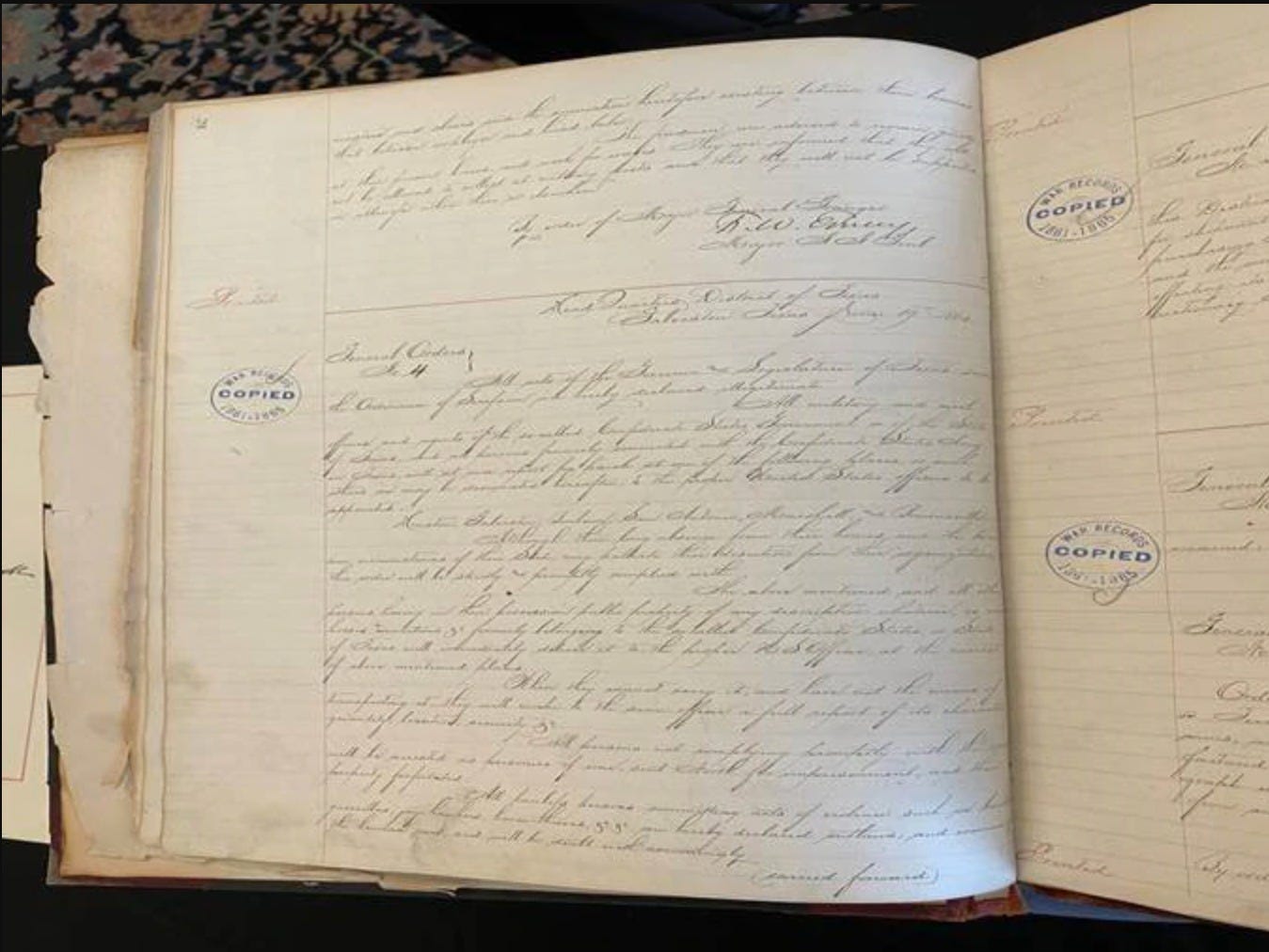- June 19, or Juneteenth, is the anniversary of when US Maj. Gen. Gordon Granger, in 1865, ordered that enslaved people in Texas were free.
- The original military order was located on Thursday at The National Archives in Washington, DC.
- The document, in ornate handwriting, is just two paragraphs long but affected about 250,000 enslaved people.
- Visit Insider’s homepage for more stories.
On Thursday, The National Archives located what appears to be the original 155-year-old “Juneteenth” military order. The handwritten document informed thousands of enslaved people in Texas that they were free.
“The people of Texas are informed that, in accordance with a proclamation from the Executive of the United States, ‘all slaves are free,'” the order reads. “This involves an absolute equality of personal rights and rights of property between former masters and slaves and the connection heretofore existing between them becomes that between employer and hired labor.”
The decree was signed by Maj. F.W. Emery on behalf of Union Maj. Gen. Gordon Granger and dated June 19, 1865.

The document was found in the formal order book "Headquarters District of Texas, Galveston … General Orders No. 3." at the Archives' headquarters in Washington, DC.
The order was located by Trevor Plante, director of an archives textual records division. Printed copies of the decree had existed. "But this is something that we haven't tracked down before," he told The Washington Post.
June 19 is celebrated as the end of slavery. Although slavery had been abolished in 1863 by Abraham Lincoln, it could not be enforced until the Confederacy was defeated. The Civil War ended in April 1865 when Confederate Gen. Robert E. Lee surrendered at Appomattox, Virginia.
It wasn't until June when Union Maj. Gen. Gordon Granger traveled to Galveston, Texas, that the order was issued and the 250,000 enslaved people learned that they were free.
Locating the document comes at a key time in the US. Across the country, thousands of people have flooded the streets to call an end to police brutality and racism. While the holiday is been celebrated in Black communities for generations with parades, cookouts, and festivals, this year's 155th anniversary will also be marked with demonstrations and marches taking place from state to state.
